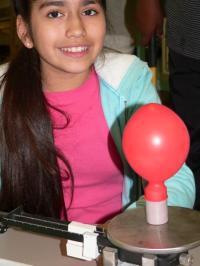How can we balance the nurturing and acceptance our children need with our role as academic taskmasters?
Today’s entry is a departure. Rather than just tell you what I think, supported with facts and figures, I want to open some questions for discussion. After all, this is intended to be a dialogue.
I just watched a couple of old videos of one of my favorite characters, the late Fred Rogers. My family did not have a television until I was ten years old, so that must be when I watched his show sometimes, on days I stayed home from school with a “stomach ache.” I know his show was aimed at much younger children, but I must have been hungry to hear those reassuring talks and songs he would share. “It’s you I love, it’s not the clothes you wear, not the way you do your hair.” “I love you for just being yourself.”

I have tried to bring that spirit to my work with students. I think we do best when we accept our students as they are for our starting point. But that can be a very tough balancing act as a middle school teacher. If a student comes to me in the 6th grade and does not know times tables, as his teacher I cannot accept that – we have to create a learning agenda so he can boost his skills and handle fractions and more advanced math.
Every time you give a test, you have stated an expectation of what a student should know how to do. As we have moved tests down into kindergarten, we have increased the pressure on students at younger ages. I really wonder about how this is affecting our children. Finland has recently attracted attention because their math and science scores are tops in the world. But they do not even begin formal schooling until age 7. In this country, there are many Waldorf schools that hold off on reading instruction until children are in the second grade.
One of the problems I have with NCLB is that our testing mechanisms have become central to the way we judge the effectiveness of a school or a teacher. There are so many other dimensions to teaching that will not be revealed by a test. Furthermore, the pressure we put on adults to increase student test scores is passed on to their students, and I think many times this places teachers in a position of using their love as leverage to get students to perform better, withholding our approval unless they learn what they must for us.
Children are dying to please the adults in their lives. They so want to hear words of praise. They so want to know they are ok. But what if that child, like Albert Einstein, cannot read at age 8? Many of us entered the profession with the impulse to nurture, which I believe means we must accept our students in the spirit of Fred Rogers, as they are. We want to encourage them to grow, to create interesting challenges for them and help them see how great they are by virtue of all they can learn. But the test agenda lays out a strict set of expectations for what every child should be able to do in every tested subject. A child who, like Einstein, might have been good in math, might still flunk the second grade if he could not read. As their teacher, we have to prod, cajole and even threaten. “If you don’t learn this by May, you might not go on to the next grade.“
We are forced to be agents of these systemic expectations.
Some would argue that this is how we best love these students – by preparing them to be academically successful. After all, few of them will make a living “just by being themselves.” They will need to develop skills and knowledge, and they need to work at this. But I wonder if the rigid expectations we set for all students – the “high bars” Secretaries of Education Spellings and Duncan are so fond of, actually are the best way to promote excellence.
But why must excellence look the same for every child? Why isn’t it ok for some children to be fantastic readers, but poor mathematicians? Or lousy at math and reading, but great at making music, or dancing? We all know successful adults who would describe themselves as just that. But we have a huge fear that if we allow the system to make room for these different outcomes, large numbers of students will be passed along without the skills they need for success in college, and thus be condemned to a life as second class citizens.
I honestly do not have the answer for this conundrum. I cannot accept the rigid expectations model currently in place, but I am not completely comfortable with the alternative model either, because I share the fear that many students could be left behind academically.
So what do you think? Are we using our love as leverage with our students? Is that ok? How can we both accept our students as they are, and still challenge them to grow?
photo by Anthony Cody sf2ih8vtn5
Website for Mister Rogers’ Neighborhood